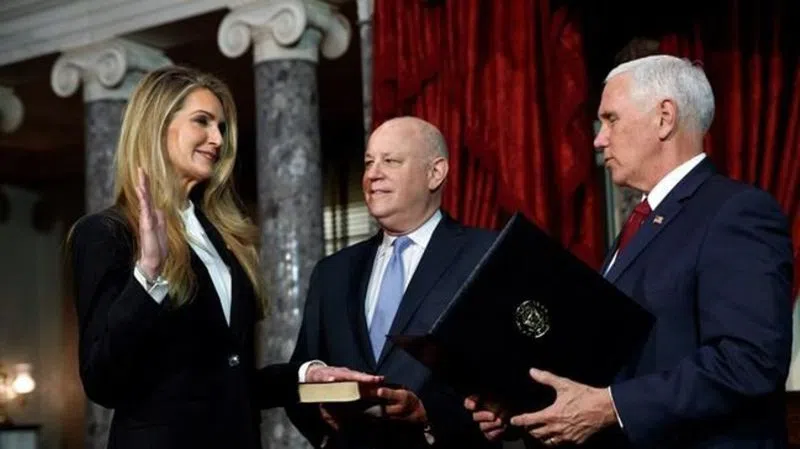
Bill would add primaries to special Georgia U.S. Senate vote
ATLANTA — Newly appointed U.S. Sen Kelly Loeffler could face an unexpected GOP primary later this year in her quest to hold onto her seat under a bill passed Monday by a Georgia legislative committee against the wishes of the state’s Republican governor.
The move could ease the way for GOP U.S. Rep. Doug Collins or another Republican to run against Loeffler, who was hand-picked by Gov. Brian Kemp even though Collins was President Donald Trump’s preferred pick. The measure could also improve the chances for a Democrat to wrest the seat away from Republican control.
Under current Georgia law, Loeffler and any other candidates, regardless of party, would run together in a November special election. If no one wins a majority of the vote, a runoff would be held in January — with control of the Senate potentially in the balance.
House Bill 757, which would establish May primaries, passed Monday out of the Elections Subcommittee of Georgia’s House Governmental Affairs Committee on an 8-2 vote. Democrats joined most Republicans to vote yes, and only two Republicans voted no.


